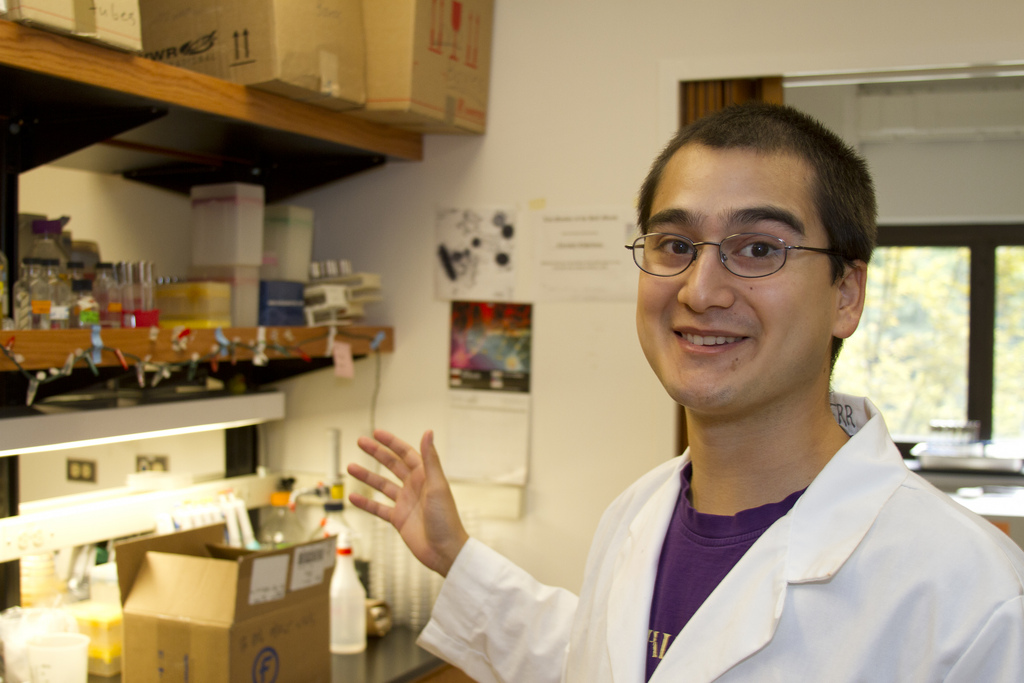Joshua Nahum

Josh in the Lab
Current Work:
https://www.egr.msu.edu/people/profile/nahum
Graduate Work:
I am a graduate student in the lab of Ben Kerr at the University of Washington, Seattle. My interests center on the study of evolution and selection. I am advancing the body of knowledge concerning how adaptation can affect traits in evolving species.
Overall Description
Specifically, my current studies are on how organisms evolve with respect to the environment they are in. Environments, both biotic and not, determine which traits will be selected for in a population. Especially intriguing to me are environments that include communities, where organisms compete, predate, and parasitize each other. When organisms are part of each other's environment, they can effect other others fitness, leading to evolutionary arms races and other phenomenon.
Current Research Focus
In addition to environment, genetic constraints can affect how organisms can adapt. A useful metaphor for illuminating the ability of organisms to adapt in the face of genetic constraints is Sewall Wright's fitness landscape. Imagine a mountain range, where each position represents a genotype, and positions are distributed so that genotypes which can be reached by mutation are close to each other. Elevation in this landscape represents fitness. Ever organism has a particular genotype somewhere in this fitness landscape. Populations of organisms would appear to be a 'cloud' of positions, with greater density where most of the genotypes within fall. Selection (for improved fitness) always drives populations 'uphill' as the highest positions will reproduce more and 'pull' the population towards it.
But, if the fitness landscape is rugged (having multiple peaks), merely climbing directly uphill doesn't guarantee that a population will evolve to the highest point in the landscape (the most fit genotype). I am also investigating what circumstances can allow population to avoid adaptive traps (sub-optimal hills that would attract and hinder the evolution of a population).
Study Systems
To allow me to study my evolutionary questions, I am using systems which are very tractable (easy to manipulate and track) and very evolvable (short generation time and large population size). I use a combinations of microbial and digital populations. Both offer numerous advantages to the study of experimental evolutionary biology.
Contact
- nahumj [snail] uw [period] edu -> mailto:nahumj [snail] uw [period] edu
- Website
- http://nahum.us
- Office
- 456 Kincaid Hall
- Mailing Address
-
Department of Biology University of Washington Box 351800 Seattle, WA 98195 USA